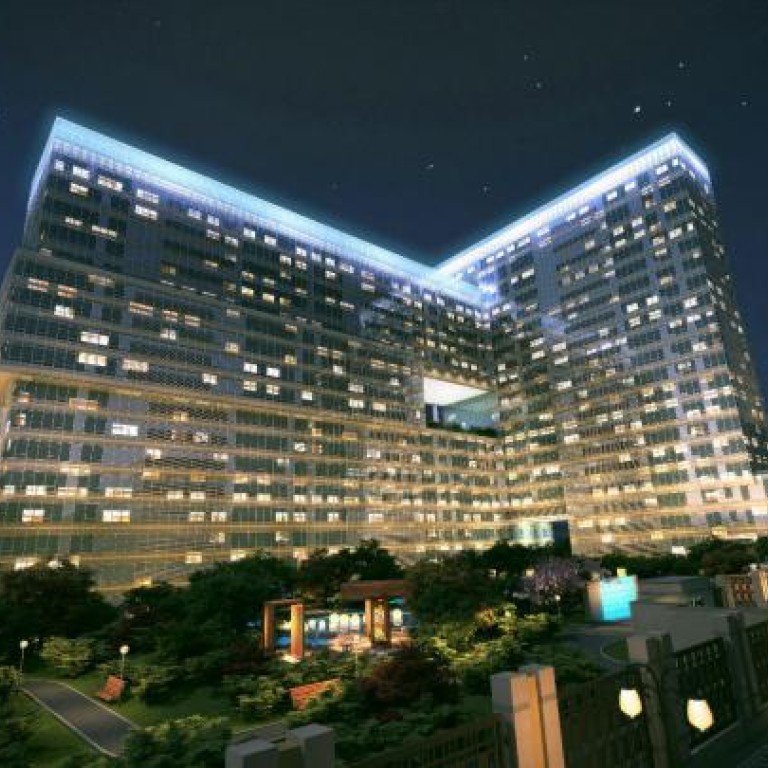
Beijing's high-end property market continues to grow
No significant impact of government restrictions seen in Beijing as competition still intense
Stable demand from local luxury home buyers in Beijing may continue to help the capital city's top-end property market grow steadily this year despite the government's ongoing tightening measures.
Having become fed up with the terrible traffic situation near her apartment, Alice Lan started to look for a new home six months ago and finally settled on a villa project in Yizhuang in the southeast of Beijing last month. The 4,090-square-foot townhouse with outdoor garden cost Lan and her husband 10 million yuan (HK$ 12.3 million).
Although the house is for her own use, the 33-year-old investment manager paid much attention to the potential investment value of her new home.
"I love particularly the flexible layout in the house, which allows me to expand the useable area easily in case of need. In addition, it's located right in the southeast part of the fifth ring road of Beijing. The land supply for villa projects has been very limited along that road. Considering that, I think this price is reasonable and has full potential to rise," she said.
Beijing was once the worst hit city when the central government announced a series of austere tightening measures to curb the property market in the nation in 2010. Two years after that, the trading volume in high-end residential properties in the city has become more active, recovering to a level similar to before the tightening.
Buoying the market are more and more high-income local customers like Lan, who are hunting for a deluxe home for their own use, rather than speculators. On top of the business value, these customers are caring more about the inside layout, traffic convenience, gardening, interior design as well as whether there is a good school around for their kids.
Analysts and property developers expect demand for top-end apartments and villas in Beijing to remain stable this year, while prices may increase if there are no further tightening measures.
According to statistics from Hong Kong-based property agent Centaline, a total of 2,019 apartments and villas with a price over 10 million yuan were sold in Beijing between January and December 9 last year. This is considerably more than the 1,450 luxury homes sold for the whole of 2011. The average trading price for luxury residential units is around 43,000 yuan per square metre last year (3,995 yuan per square foot).
"[The high-end market] did have a full recovery in 2012," said Zhang Dawei, a chief analyst of Centaline's Beijing office.
"[On] one hand it's because the whole market is getting warm; on the other hand both buyers and sellers in the high-end market have got used to the government's restrictions for the past two years and the trading is getting more active."
Beijing said in 2010 that local residents could purchase no more than two flats in the city while nonlocal residents must pay taxes in the city for five years before buying a home there.
"But this [policy] is not a big problem for many high-income people. As long as they want to, they can actually buy a flat in the name of their companies or other family members," Zhang added.
Despite the stable demand for expensive houses in Beijing, the competition to grab super-rich home buyers is intense. Over the past year, a small number of projects in the city, including Jin Mao Palace, West Chateau and Centrium Residence, have been leading the sales and took a major share of the market.
Tim Mak, general manager in charge of Socam's Northern China market, said nearly two thirds of buyers for Centrium Residence in Sanlitun are local with one third foreign passport holders. There are a small number of nonlocal Chinese buyers too. "Many believed the government restrictions would deal a blow to the high-end property market. However, the fact is that we didn't see a significant impact, even in Beijing," said Mak.
